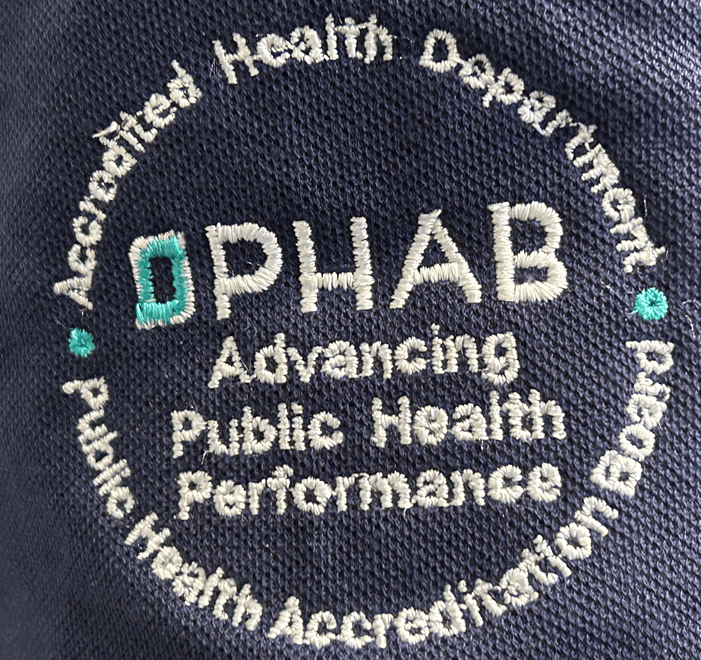Erin Perkins is the Accreditation and Communications Coordinator at the Rappahannock Area Health District.
The Rappahannock Area Health District has been awarded national accreditation through the Public Health Accreditation Board (PHAB). Established in 2007, PHAB is the non-profit organization that administers the national accreditation program, which aims to advance and transform public health practice by championing performance improvement, strong infrastructure, and innovation. Accreditation through PHAB demonstrates RAHD’s commitment to excellence in serving the community and meeting foundational needs.
The national accreditation program, which receives support from the Centers for Disease Control and Prevention, sets standards against which the nation’s governmental public health departments can continuously improve the quality of their services and performance. Standards emphasize Foundational Capabilities and are aligned with the 10 Essential Public Health Services. Approximately 11% of local health departments nationwide are accredited, and RAHD is only the fifth of the 35 local health districts in Virginia to achieve this distinction.
Though Rappahannock Area Health District is widely known for providing clinical services and working on the COVID-19 response, additional RAHD programs include:
• Inspecting and permitting food establishments, including but not limited to restaurants, food trucks, temporary food vendors, and school cafeterias.
• Permitting on-site septic systems in the area
• Inspecting public swimming pools, hotels, and campgrounds
• Investigating reports of exposure to potentially rabid animals
• Administering the Women’s Infants and Children (WIC) program, providing nutrition education, breastfeeding promotion and support, supplemental nutritious foods, counseling at WIC clinics, and screening and referrals to other health and social services
• Investigating outbreaks of communicable disease, including in nursing homes and school settings
• Identifying sources of foodborne illnesses
• Connecting community members to resources like food, housing, and primary care
• Providing no cost naloxone to community members and coordinating local opioid overdose prevention efforts
• Leading and participating in various coalitions with community-based organizations
• Preparing for and responding to public health emergencies
• Providing birth, death, marriage, and death certificates
• Conducting the Community Health Assessment and Community Health Improvement Plan in partnership with Mary Washington Healthcare, which most recently identified mental health, affordable housing, and access to healthcare as priority issues for our area.







